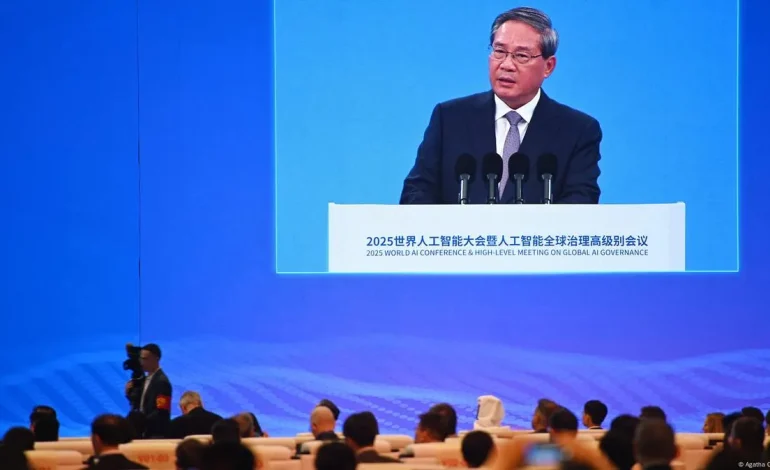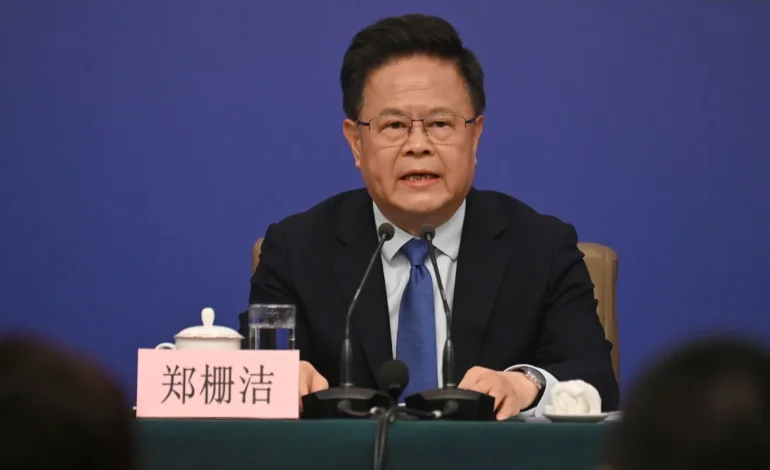ICBC Launches 80 Billion Yuan Fund for Tech Innovation

Introduction
The Industrial and Commercial Bank of China (ICBC), the world’s largest commercial bank by assets, has launched an 80 billion yuan fund to accelerate technology innovation. The initiative is designed to support strategic sectors including artificial intelligence, semiconductors, green energy, and advanced manufacturing. The move underscores China’s financial sector’s role in mobilizing capital for the country’s broader technological transformation.
Details of the fund
ICBC announced that the fund will provide financing through a mix of equity investments, loans, and structured products. The focus will be on startups and mid-sized firms that are developing breakthrough technologies but struggle to access traditional bank lending. According to the bank, priority will be given to companies aligned with national strategies such as AI development, chip self-sufficiency, and renewable energy deployment.
The fund will be managed by ICBC’s investment arm, working closely with regulators and industry associations to ensure that capital flows into projects with both commercial viability and policy alignment. Officials stated that the fund will not only target financial returns but also deliver strategic value for China’s long-term competitiveness.
Why ICBC is stepping in
As China faces rising pressure from global technology restrictions and supply chain disruptions, the state-backed financial system is being called on to fill funding gaps. Private venture capital investment has slowed in recent years, leaving promising startups underfunded. ICBC’s initiative reflects a broader government directive for state-owned banks to channel resources into high-tech industries critical for national security and economic growth.
By deploying one of the largest tech-focused funds ever launched by a Chinese bank, ICBC is signaling confidence in the ability of domestic firms to close gaps with global competitors.
Target sectors
The fund will cover several priority areas:
- Artificial intelligence: support for large language models, computer vision, and AI-powered enterprise applications.
- Semiconductors: investment in chip design, manufacturing equipment, and materials to reduce dependence on foreign suppliers.
- Green energy: backing for solar, wind, and energy storage technologies that can help China meet its carbon neutrality targets.
- Advanced manufacturing: funding for robotics, smart factories, and industrial automation.
These sectors align with China’s Five-Year Plan and long-term innovation roadmaps, ensuring the fund supports national priorities.
Impact on startups and SMEs
For startups, ICBC’s fund provides access to capital at a scale that few other sources in China can match. Many smaller firms in AI and chips have strong research pipelines but lack the financial stability needed to secure traditional bank loans. The new fund bridges this gap by combining equity stakes with credit support, giving companies both growth capital and long-term financial partners.
Industry analysts note that the involvement of a major state bank also provides validation, making it easier for recipients to attract additional private investment.
Integration with China’s financial strategy
The launch of the fund is part of a wider effort to make China’s financial system more supportive of innovation. Regulators have repeatedly urged banks to move beyond real estate and infrastructure lending and instead back technology sectors that will drive future growth. By taking the lead, ICBC sets a precedent for other large banks such as Bank of China and China Construction Bank to create similar funds.
Potential benefits for China’s innovation ecosystem
If deployed effectively, the fund could help China close critical gaps in chip design, expand its AI talent pool, and accelerate the transition to green energy. By spreading investment across multiple sectors, ICBC reduces concentration risk while ensuring broad coverage of strategic industries.
The fund also has the potential to foster deeper collaboration between academia, startups, and established firms, creating innovation clusters that can compete with global rivals in Silicon Valley, Europe, and elsewhere in Asia.
Risks and challenges
Despite its size, the fund faces challenges. Identifying commercially viable projects in emerging technologies can be difficult, and there is always a risk of capital misallocation. Political priorities may also influence investment decisions, potentially leading to support for projects that meet policy goals but lack financial sustainability.
Additionally, startups will still face hurdles in areas such as intellectual property protection, international market access, and competition with larger domestic players. The fund may ease financial constraints but cannot resolve structural challenges in China’s innovation ecosystem.
Global context
The launch of ICBC’s fund mirrors global trends, as governments and financial institutions worldwide channel resources into strategic technologies. In the US, venture capital has flowed heavily into AI and chips, while Europe has created funding programs for green energy and digitalization. China’s approach, however, is unique in its scale and the central role of state-backed banks in directing capital.
For global investors, ICBC’s initiative is a signal that China is serious about mobilizing financial firepower behind its technology ambitions. It also suggests that partnerships with Chinese firms in strategic sectors will increasingly involve state-backed capital.
Conclusion
The 80 billion yuan technology innovation fund launched by ICBC highlights the growing alignment between China’s financial sector and its innovation goals. By directing capital into AI, semiconductors, green energy, and advanced manufacturing, the bank is positioning itself as a catalyst for the country’s technological transformation. Success will depend on careful investment decisions and the ability of recipient firms to deliver breakthroughs. If effective, the fund could accelerate China’s progress toward self-reliance and global leadership in critical technologies.






